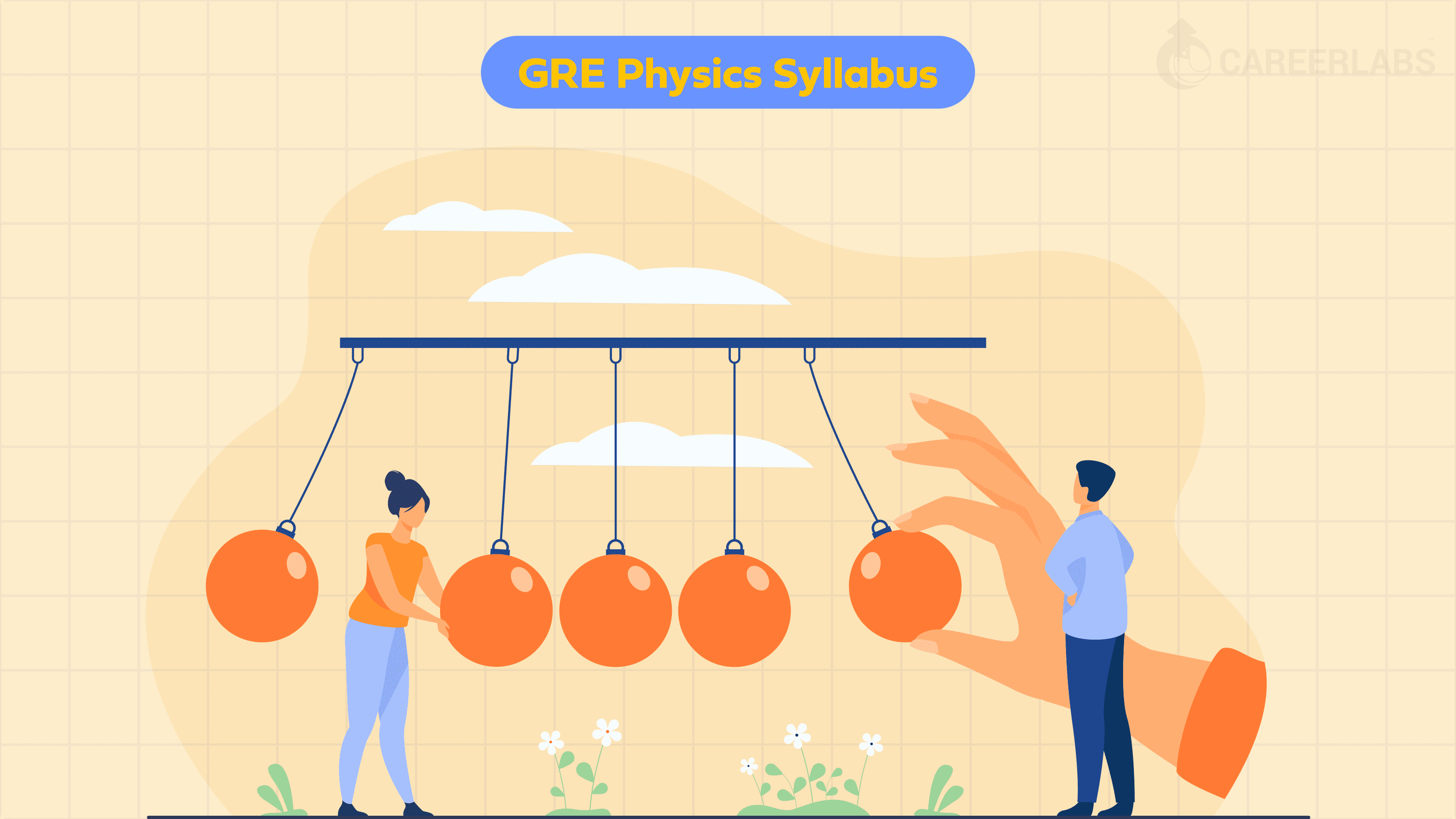The GRE subject tests measure your aptitude in specific subjects. The tests are usually taken as a supplement to undergraduate exam scores when applying for admission to a graduate program with an emphasis on the subject. Sometimes, universities make it a mandatory requirement to take this test so that they may assess your knowledge on the topic, as you are expected to have a background in the discipline beforehand. If you are looking to obtain a master’s degree/doctorate in Physics, you will most likely need to take the GRE Physics Subject Test. Hence, for this, it is essential you are aware of the GRE Physics Syllabus.
The test covers key concepts in physics that you might already be having a firm hold on as you will be applying for a masters in the discipline. Besides, the GRE in Physics is offered for only a few months every year, so make sure that you check the schedule and your application deadlines to ensure that you get everything done in time. You can register for the test on the official GRE website.
You can expect a test that contains 100 multiple choice questions with 5 choices each. Some of the questions are categorized based on material such as graphs, experimental data, diagrams, descriptions of physical situations, and others. Read on to find out the topics in your GRE Physics Syllabus 2021.
GRE Physics Syllabus
Below you will find a list of question topics that are usually tested in the GRE exam: Physics. All topics will not be covered in each test, but this official list of topics from ETS will help you to know what to prepare or what sub-topics to brush up on before your test. You can refer to the official Physics GRE Test Practice Book provided by ETS for further information.
- Classical Mechanics
This will probably account for about twenty percent of the syllabus. The topics include — Kinematics, noninertial reference frames, energy and work, rotational motion about a fixed axis, of particles, celestial mechanics and central forces, oscillatory motion, dynamics of systems Newton’s laws, Hamiltonian and Lagrangian formalism, three-dimensional particle dynamics, elementary topics in fluid dynamics.
- Optics and Wave Phenomena
About 9% of questions are likely to be from this topic. The topics include — Wave properties, interference, geometrical optics, superposition, polarization, diffraction, Doppler effect.
- Electromagnetism
This topic will account for eighteen percent of the syllabus. The topics include — Electrostatics, electromagnetic waves, induction, magnetic fields in free space, AC circuits, currents and DC circuits, Maxwell’s equations and their applications, Lorentz force, magnetic and electric fields in matter.
- Quantum Mechanics
About twelve percent of questions will be related to Quantum Mechanics. The topics include — Fundamental concepts, angular momentum, solutions of the Schrodinger equation (including oscillators, square wells, and hydrogenic atoms), elementary perturbation theory, spin, wave function symmetry.
- Atomic Physics
This topic will provide ten percent of topics in the test. The topics include — Properties of electrons, atomic spectra, atomic structure, black-body radiation, Bohr model, selection rules, x-rays, energy quantization, atoms in magnetic and electric fields.
- Laboratory Methods
Six percent of the questions will deal with lab methods. The topics include — Data and error analysis, radiation detection, interaction of charged particles with matter, electronics, dimensional analysis, optical interferometers and lasers, instrumentation, counting statistics, fundamental applications of probability and statistics.
- Thermodynamics and Statistical Physics
Ten percent of questions will be from this topic. The topics include — Laws of thermodynamics, ideal gases, equations of state, ensembles, thermodynamic processes, kinetic theory, statistical concepts and calculation of thermodynamic quantities, thermal expansion of heat transfer.
- Special Relativity
There is slightly lesser emphasis on these final three topics This one only accounts for roughly six percent of the 100 questions. The topics include — Introductory concepts, length contraction, energy and momentum, simultaneity, time dilation, four-vectors and Lorentz transformation, velocity addition.
- Specialized Topics
The final category deals with specialised subject matters, and very few questions will be from this topic. The topics include — Nuclear and Particle physics, computer applications, Condensed Matter physics, mathematical methods, astrophysics.
The above topics make up the GRE Physics syllabus. Besides, you can download the GRE Physics Syllabus pdf online as well. Moreover, you may have to take both the GRE General Test and the Physics Subject GRE, so make sure you ascertain the requirements of the university of choice. With the right preparation and planning, you will ace the test and secure admission to your dream university.
Good luck!











Talk to an expert?